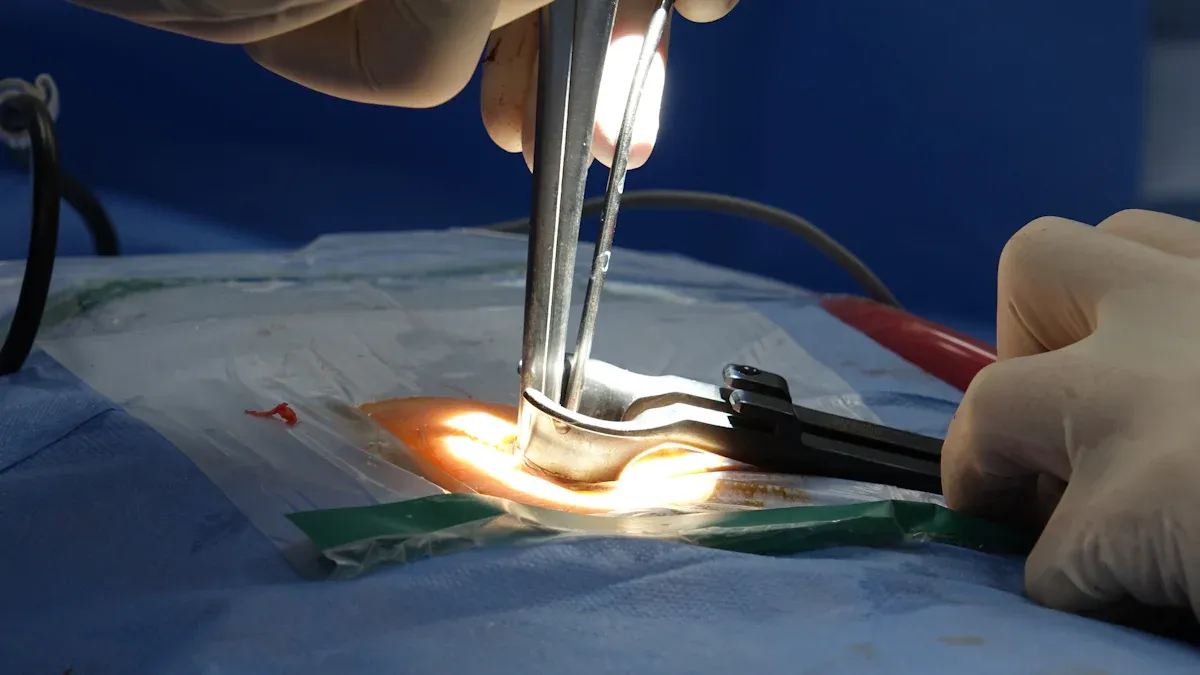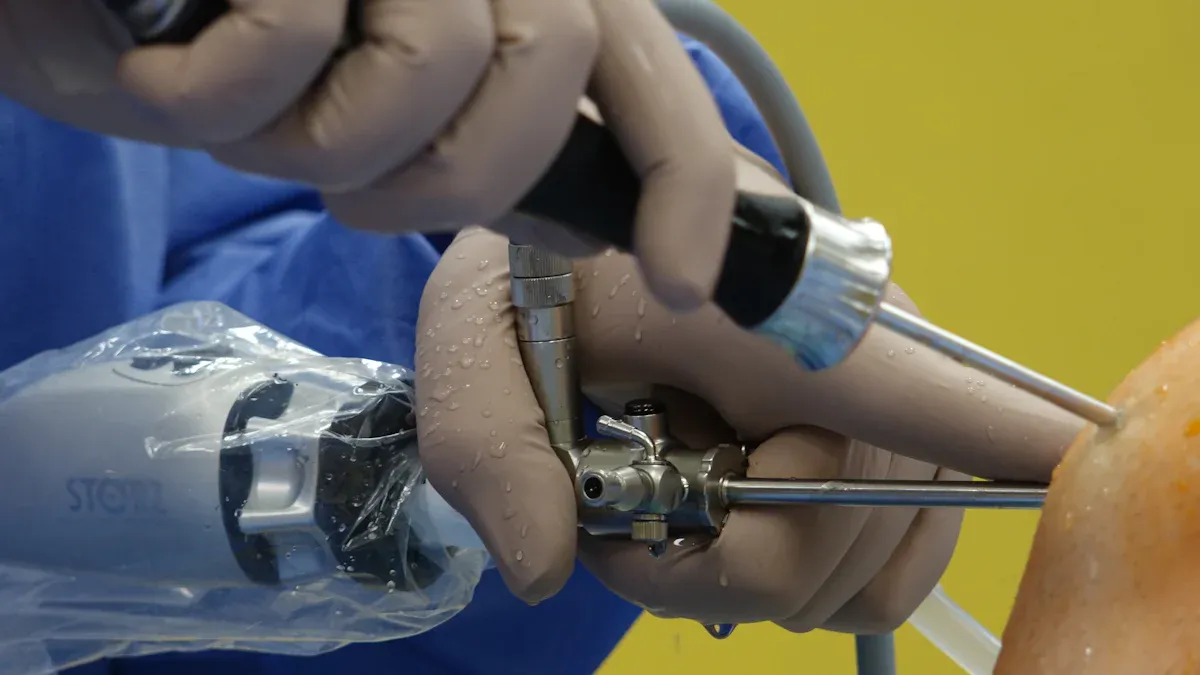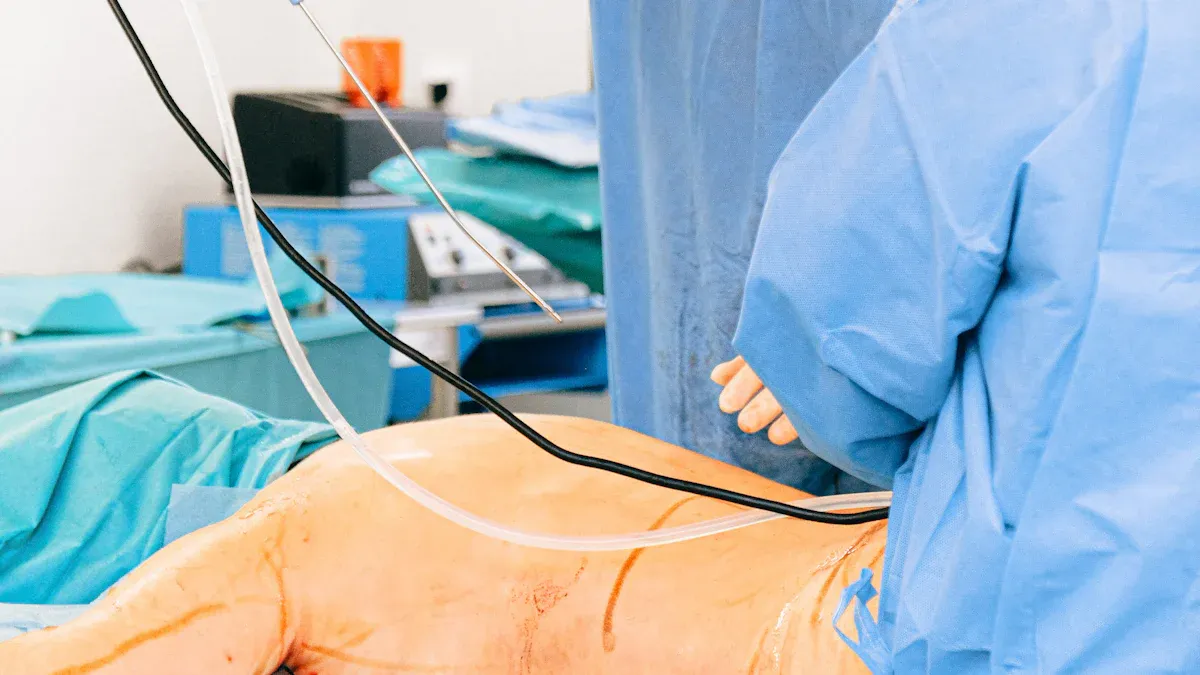How Nitinol Tubing Transforms Cardiovascular Procedures

High-precision Nitinol tubing for minimally invasive surgery has revolutionized how heart procedures are performed. Its unique features, such as shape memory and flexibility, allow it to conform to the body effortlessly. This enables smooth navigation through complex areas, reducing the likelihood of surgical errors. Additionally, it is biocompatible, resulting in fewer adverse reactions. High-precision Nitinol tubing is both strong and pliable, making it ideal for minimally invasive surgeries. These procedures are more precise and facilitate faster patient recovery. With these advancements, surgeries have become safer and more manageable for both healthcare providers and patients.
Key Takeaways
Nitinol tubing can return to its shape, helping devices work better.
It bends easily without breaking, perfect for tight surgery spaces.
Nitinol is safe for the body, lowering the chance of bad reactions.
Small cuts in surgeries with Nitinol mean less pain and quick healing.
Its special features help doctors do tricky surgeries more accurately.
Understanding Nitinol Tubing
What is Nitinol?
Nitinol is a special material that changed modern medicine. It is made of nickel and titanium in almost equal amounts. This mix lets nitinol return to its shape after bending or stretching. How does this happen? Nitinol has two crystal forms: austenite and martensite. Austenite forms in heat, while martensite appears in cold. These forms help nitinol handle temperature and stress changes, making it very useful.
Nitinol also has a feature called thermal hysteresis. This means the temperature for phase changes differs when heating or cooling. For example, the temperature when martensite starts turning to austenite (As) is not the same as when it finishes (Af). This makes nitinol work well in different conditions, especially in medical tools.
Key properties: Shape memory and superelasticity
Nitinol has two main features: shape memory and superelasticity. Shape memory lets nitinol "remember" its shape. After bending, it can return to its shape when heated. This is important for devices like stents that need to fit the body but return to their original form.
Superelasticity helps nitinol recover from bending without breaking. This makes it great for tools like braces and surgical instruments. These features have improved many industries, especially medicine, by making tools more precise and reliable.
Why Nitinol is ideal for medical applications
Nitinol’s special features make it great for medical use. Its shape memory helps stents and wires return to their shape, improving accuracy in surgeries. Superelasticity lets tools bend and return to shape, making them dependable during operations. Nitinol is also biocompatible, lowering the chance of bad reactions in implants.
Property | Use in Medical Devices |
|---|---|
Shape Memory | Helps stents and wires return to shape, improving accuracy in surgeries. |
Superelasticity | Tools can bend and return to shape, staying reliable during use. |
Biocompatibility | Lowers risk of bad reactions in implants, keeping patients safe. |
Corrosion Resistance | Keeps implants strong and lasting in the body’s environment. |
These qualities make nitinol a big deal in healthcare, helping patients and advancing medical tools.
High-Precision Nitinol Tubing for Minimally Invasive Surgery

Role in stents and vascular prostheses
Stents help fix blocked or narrow blood vessels. Nitinol tubing has changed how stents are made and used. Its shape memory helps stents expand and fit perfectly in vessels. This keeps blood flowing and lowers the chance of problems. Superelasticity lets stents handle blood vessel movements without losing shape.
Nitinol also helps in making vascular prostheses, which replace damaged vessels. Its flexibility allows these prostheses to move naturally with the body. This makes them last longer and work better. Using nitinol ensures these devices stay reliable over time.
Use in catheters and guidewires
Catheters and guidewires are important for small, precise surgeries. Nitinol tubing improves how these tools work. Its superelasticity helps them move through tight spaces without breaking. Shape memory keeps them working even after bending or twisting.
These features make nitinol tubing perfect for catheters and guidewires in heart surgeries. These tools give accurate results and reduce patient pain. Nitinol has made minimally invasive surgeries more successful.
Applications in neural surgeries
Neural surgeries need tools for delicate and tricky areas. Nitinol tubing is great for this because it is flexible and strong. It is also safe for the body and doesn’t cause bad reactions.
Nitinol tools help surgeons do precise neural surgeries with less risk. These tools make hard procedures safer and more accurate. Nitinol has created new chances for better neural treatments.
Performance Characteristics of Nitinol Tubing
Size and tolerance precision
Precision is very important in medical tools. Nitinol tubing is made with exact sizes and tight tolerances. This ensures every tool fits perfectly for delicate surgeries. Even small mistakes can cause big problems, so accuracy matters.
In heart surgeries, nitinol tubing helps stents and catheters fit well in blood vessels. This reduces risks and improves patient recovery. Nitinol tools are trusted for their reliable and precise performance in tough medical tasks.
Mechanical properties and durability
Nitinol is strong and flexible. It bends and moves without breaking, making it great for tight spaces. Even after many uses, nitinol tubing keeps its shape and works well.
It is also very durable. Nitinol lasts a long time and doesn’t wear out easily. This means fewer replacements are needed, saving time and money. Whether in stents or guidewires, nitinol is strong and dependable.
Biocompatibility and thermal conductivity
Nitinol is safe for the human body. It doesn’t cause bad reactions, making it perfect for implants and medical tools. Patients can trust nitinol for safety and comfort.
It also transfers heat well. This is important for tools that need heat to work, like those using shape memory. Nitinol’s safety and heat transfer make it useful for many medical purposes.
The Transformative Impact of Nitinol Tubing

Improving surgical accuracy and results
Nitinol tubing has changed how surgeries are done. Its strength and precise design help tools work accurately. It can bend easily to move through tricky body areas safely. This reduces risks during surgery and helps patients recover better. Nitinol is safe for the body, lowering the chance of problems. These features make nitinol tubing a reliable choice for better surgeries.
Helping patients heal faster with fewer problems
Patients gain many benefits from nitinol in surgeries. Its special traits allow smaller cuts, causing less harm to the body. Smaller cuts mean less pain and quicker healing. There are also fewer problems since nitinol is safe for the body. For example, nitinol stents adjust to body movements, staying dependable over time. This leads to better health and a faster return to normal life.
Giving surgeons better tools for success
Surgeons get great benefits from nitinol tubing. Its flexibility lets tools bend and move through tight spaces without breaking. This makes hard surgeries easier and safer to perform. Nitinol’s shape memory keeps tools like stents and wires in their proper shape. These features make surgeries more accurate and less stressful for surgeons. With nitinol, surgeons can focus on giving the best care to patients.
Nitinol tubing is special because of its shape memory, superelasticity, and safety for the body. These features make it very useful in heart and brain surgeries. Patients get safer treatments, heal faster, and face fewer risks. Doctors use tools that are more accurate and dependable.
Nitinol tubing has changed what doctors can do in medicine.
Its uses are still growing. As technology improves, it may lead to even more amazing medical tools. Learning more about nitinol could help create better ways to treat patients. The future of healthcare depends on materials like this.
FAQ
What makes Nitinol tubing special for medical use?
Nitinol tubing is unique because of its shape memory and superelasticity. These features let it move with the body and return to its shape. Its biocompatibility makes it safe for implants and tools, making it a trusted option for surgeries.
How does Nitinol tubing help patients recover faster?
Nitinol tubing allows smaller cuts during surgeries. This means less harm to tissues and less pain. Patients heal quicker because of this. Its biocompatibility also lowers risks, helping patients recover smoothly.
Can Nitinol tubing be used in surgeries other than heart-related ones?
Yes, Nitinol tubing is useful in many surgeries. It is often used in brain and bone procedures. Its flexibility and strength make it perfect for delicate surgeries, ensuring safety and accuracy in different medical areas.
Is Nitinol tubing safe to stay in the body for a long time?
Nitinol tubing is very safe for long-term use. It is biocompatible and resists rust, making it great for implants like stents. It works well with the body, staying strong and reliable over time.
Why is superelasticity important for surgical tools?
Superelasticity lets tools bend and move without breaking. This is important for reaching tight or tricky areas in the body. It keeps tools working well during surgeries, improving results and safety.
Tip: Always talk to your doctor to learn how materials like Nitinol can help with your medical care.
See Also
Nitinol Tubing's Impact on the Future of Medical Devices
Nitinol Tubing's Contribution to Progress in Medical Technology
The Importance of Nitinol Tubing for Minimally Invasive Techniques
Investigating How Nitinol Tubing Enhances Healthcare Device Applications

